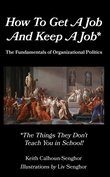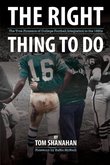
edited by Michele Filgate ‧ RELEASE DATE: May 6, 2025
With tenderness and aplomb in equal measure, these essays plumb the depths of paternal relations.
Fathers are the lodestone of this varied anthology, which circles them brilliantly.
In this much-anticipated follow-up to the acclaimed What My Mother and I Don’t Talk About, writer and editor Filgate prompts 15 esteemed writers to reflect on their fathers. The resulting essays offer a diverse spread, reflecting the panoply of relationships it’s possible to have with that key figure. In Jiordan Castle’s essay, she grapples with finding personal freedom from her father after he is reincarcerated. Susan Muaddi Darraj explores the duty-bound role of the eldest immigrant daughter alongside similar burdens placed on her father. In “The Son,” Robin Reif reveals her desire to receive the status of a son within her patriarchal family and the complicated position her brother occupied as recipient of that coveted mantle. “Roots & Rhizomes” sees Kelly McMasters using the natural world to understand her father—“We’ve probably spoken more about plants than any other topic during our nearly fifty years sharing this planet.” Jaquira Díaz seeks to understand the gaps in her father’s life story while occupying the same city her father once spent a mysterious summer in. In “A Storybook Childhood,” Joanna Rakoff reckons with a father who expounded at length about his and her mother’s lives—some of which was true. Andrew Altschul surveys his father with newfound perspective as a father himself. Tomás Q. Morín takes the game of Operation as a tool to reach toward all pieces of his father. Heather Sellers and Julie Buntin speak with bracing honesty about reconnecting after paternal estrangement. Isle McElroy and Maurice Carlos Ruffin occupy the workspaces with their fathers. Alex Marzano-Lesnevich encounters the shifting power dynamic of aging. Dylan Landis returns from the first anthology to face her psychoanalyst father, and Nayomi Munaweera is back, looking at her parents’ arranged marriage from the paternal side. Throughout, the essays are marked with love, honesty, and exquisite writing.
With tenderness and aplomb in equal measure, these essays plumb the depths of paternal relations.Pub Date: May 6, 2025
ISBN: 9781668049655
Page Count: 320
Publisher: Simon & Schuster
Review Posted Online: Feb. 15, 2025
Kirkus Reviews Issue: March 15, 2025
Share your opinion of this book
More by Michele Filgate
BOOK REVIEW
edited by Michele Filgate

by Jennette McCurdy ‧ RELEASE DATE: Aug. 9, 2022
The heartbreaking story of an emotionally battered child delivered with captivating candor and grace.
Awards & Accolades
Likes

15
Our Verdict

GET IT
New York Times Bestseller
IndieBound Bestseller
The former iCarly star reflects on her difficult childhood.
In her debut memoir, titled after her 2020 one-woman show, singer and actor McCurdy (b. 1992) reveals the raw details of what she describes as years of emotional abuse at the hands of her demanding, emotionally unstable stage mom, Debra. Born in Los Angeles, the author, along with three older brothers, grew up in a home controlled by her mother. When McCurdy was 3, her mother was diagnosed with breast cancer. Though she initially survived, the disease’s recurrence would ultimately take her life when the author was 21. McCurdy candidly reconstructs those in-between years, showing how “my mom emotionally, mentally, and physically abused me in ways that will forever impact me.” Insistent on molding her only daughter into “Mommy’s little actress,” Debra shuffled her to auditions beginning at age 6. As she matured and starting booking acting gigs, McCurdy remained “desperate to impress Mom,” while Debra became increasingly obsessive about her daughter’s physical appearance. She tinted her daughter’s eyelashes, whitened her teeth, enforced a tightly monitored regimen of “calorie restriction,” and performed regular genital exams on her as a teenager. Eventually, the author grew understandably resentful and tried to distance herself from her mother. As a young celebrity, however, McCurdy became vulnerable to eating disorders, alcohol addiction, self-loathing, and unstable relationships. Throughout the book, she honestly portrays Debra’s cruel perfectionist personality and abusive behavior patterns, showing a woman who could get enraged by everything from crooked eyeliner to spilled milk. At the same time, McCurdy exhibits compassion for her deeply flawed mother. Late in the book, she shares a crushing secret her father revealed to her as an adult. While McCurdy didn’t emerge from her childhood unscathed, she’s managed to spin her harrowing experience into a sold-out stage act and achieve a form of catharsis that puts her mind, body, and acting career at peace.
The heartbreaking story of an emotionally battered child delivered with captivating candor and grace.Pub Date: Aug. 9, 2022
ISBN: 978-1-982185-82-4
Page Count: 320
Publisher: Simon & Schuster
Review Posted Online: May 30, 2022
Kirkus Reviews Issue: July 1, 2022
Share your opinion of this book
More About This Book
SEEN & HEARD
SEEN & HEARD
SEEN & HEARD

by Annette Gordon-Reed ‧ RELEASE DATE: May 4, 2021
A concise personal and scholarly history that avoids academic jargon as it illuminates emotional truths.
Awards & Accolades
Our Verdict

GET IT
New York Times Bestseller
IndieBound Bestseller
The Harvard historian and Texas native demonstrates what the holiday means to her and to the rest of the nation.
Initially celebrated primarily by Black Texans, Juneteenth refers to June 19, 1865, when a Union general arrived in Galveston to proclaim the end of slavery with the defeat of the Confederacy. If only history were that simple. In her latest, Gordon-Reed, winner of the Pulitzer Prize, National Book Award, Anisfield-Wolf Book Award, and numerous other honors, describes how Whites raged and committed violence against celebratory Blacks as racism in Texas and across the country continued to spread through segregation, Jim Crow laws, and separate-but-equal rationalizations. As Gordon-Reed amply shows in this smooth combination of memoir, essay, and history, such racism is by no means a thing of the past, even as Juneteenth has come to be celebrated by all of Texas and throughout the U.S. The Galveston announcement, notes the author, came well after the Emancipation Proclamation but before the ratification of the 13th Amendment. Though Gordon-Reed writes fondly of her native state, especially the strong familial ties and sense of community, she acknowledges her challenges as a woman of color in a state where “the image of Texas has a gender and a race: “Texas is a White man.” The author astutely explores “what that means for everyone who lives in Texas and is not a White man.” With all of its diversity and geographic expanse, Texas also has a singular history—as part of Mexico, as its own republic from 1836 to 1846, and as a place that “has connections to people of African descent that go back centuries.” All of this provides context for the uniqueness of this historical moment, which Gordon-Reed explores with her characteristic rigor and insight.
A concise personal and scholarly history that avoids academic jargon as it illuminates emotional truths.Pub Date: May 4, 2021
ISBN: 978-1-63149-883-1
Page Count: 128
Publisher: Liveright/Norton
Review Posted Online: Feb. 23, 2021
Kirkus Reviews Issue: March 15, 2021
Share your opinion of this book
More by Annette Gordon-Reed
BOOK REVIEW
BOOK REVIEW
BOOK REVIEW
More About This Book
SEEN & HEARD
© Copyright 2025 Kirkus Media LLC. All Rights Reserved.
Hey there, book lover.
We’re glad you found a book that interests you!
We can’t wait for you to join Kirkus!
It’s free and takes less than 10 seconds!
Already have an account? Log in.
OR
Trouble signing in? Retrieve credentials.
Welcome Back!
OR
Trouble signing in? Retrieve credentials.
Don’t fret. We’ll find you.





